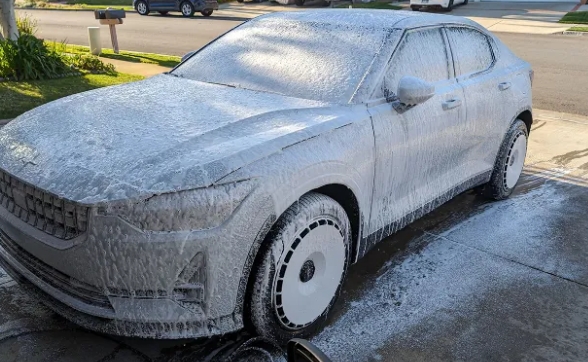Maintaining a clean and well-maintained car not only enhances its appearance but also prolongs its lifespan. However, many car owners often wonder if their vehicle is too dirty for detailing. In this comprehensive guide, we will delve into the factors that determine whether your car needs detailing and provide practical tips to assess its cleanliness. So, let's dive in and discover if your car is in dire need of a professional detailing service.
- Exterior Assessment:
To determine if your car is too dirty for detailing, start by examining the exterior. Look for the following signs:
a. Accumulated Dirt and Grime: Check for a thick layer of dirt, mud, or road grime on the body, wheels, and undercarriage. If your car has excessive dirt buildup, it may require professional detailing.
b. Stains and Contaminants: Inspect the paintwork for stubborn stains, bird droppings, tree sap, or other contaminants that regular washing cannot remove. These can damage the paint if left untreated.
c. Oxidation and Fading: Assess the paint's condition by looking for signs of oxidation, fading, or swirl marks. These issues can be addressed through detailing techniques like paint correction.
- Interior Assessment:
The cleanliness of your car's interior is equally important. Consider the following aspects:
a. Upholstery and Carpet Stains: Check for visible stains, spills, or discoloration on the seats, carpets, and floor mats. If regular vacuuming and spot cleaning fail to remove them, professional detailing may be necessary.
b. Lingering Odors: Evaluate if there are any unpleasant odors inside the car, such as cigarette smoke, pet smells, or food odors. Detailing can help eliminate these odors and freshen up the interior.
c. Dust and Debris: Examine the dashboard, vents, and other hard-to-reach areas for accumulated dust, debris, or grime. If these areas are difficult to clean on your own, detailing experts can ensure a thorough cleaning.
- Mechanical Assessment:
While detailing primarily focuses on aesthetics, it is essential to consider the mechanical aspects as well:
a. Engine Bay: Assess the cleanliness of the engine bay. Excessive dirt, grease, or oil buildup can hinder the engine's performance and may require professional cleaning.
b. Undercarriage: Inspect the undercarriage for caked-on mud, rust, or debris. Detailing can help remove these contaminants, preventing potential damage to the vehicle's components.
Conclusion:
Determining if your car is too dirty for detailing involves assessing various aspects of its cleanliness, both inside and out. By examining the exterior for dirt, stains, and paint issues, evaluating the interior for stains and odors, and considering the mechanical aspects, you can make an informed decision about whether your car needs professional detailing. Remember, regular detailing not only enhances your car's appearance but also protects its value and ensures a pleasant driving experience. So, don't hesitate to give your car the attention it deserves!
